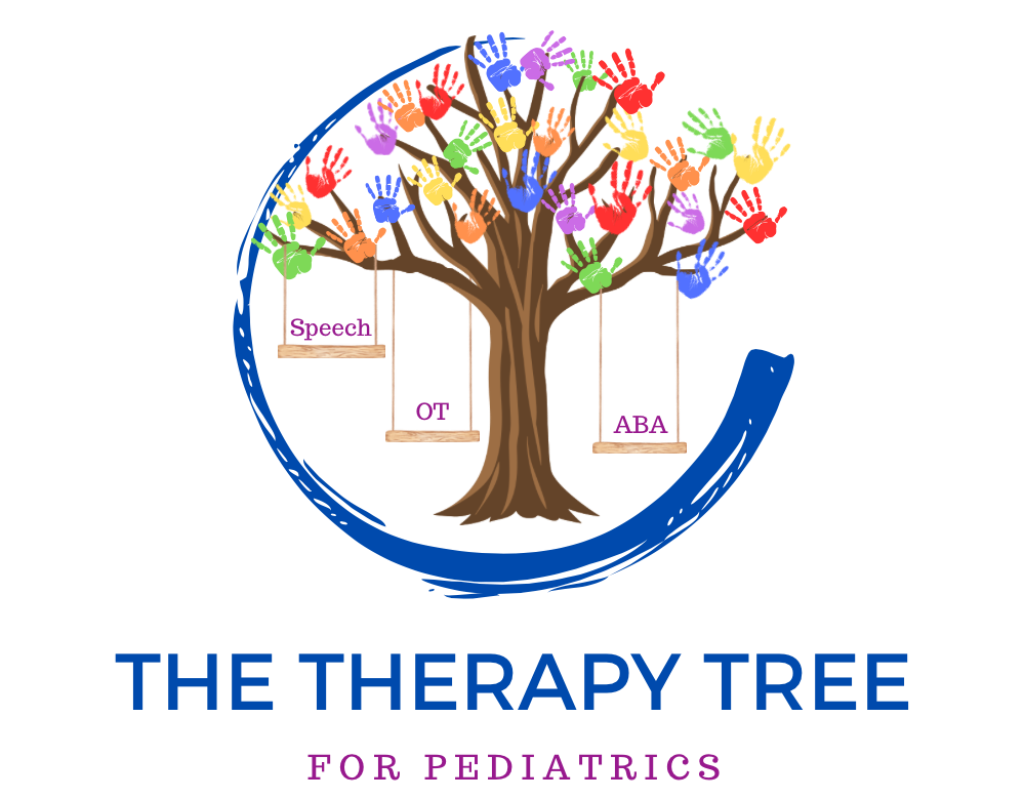The Milestones of Speech Development: What’s Normal and When to Seek Help
-
November 17, 2025
Speech and language are essential skills that allow children to communicate, learn, and interact with the world around them. At The Therapy Tree, we support children from infancy to 21 years of age with play-based speech therapy tailored to each child’s unique needs. Our clinics provide a nurturing environment where children can grow, explore, and develop strong communication skills through our Play, Learn, Grow philosophy.
Early Speech and Language Milestones
Children reach speech and language milestones at different rates, but there are general expectations for typical development:
- Birth to 12 months: Cooing, babbling, and the first recognizable words. Children begin to understand simple words and gestures.
- 12 to 24 months: Vocabulary expands rapidly; children begin to combine two words, follow simple instructions, and express basic needs.
- 2 to 3 years: Short sentences form, speech becomes more understandable, and children can answer simple questions.
- 3 to 5 years: Use of complex sentences improves, storytelling begins, and children start to follow multi-step directions.
- 5 years and older: Speech is mostly intelligible to strangers, vocabulary grows, and children can engage in social conversations and basic reading/writing tasks.
When to Seek Help
It’s important for parents and caregivers to recognize when a child may need additional support. Signs that a child may benefit from speech or language therapy include:
- Limited vocabulary for age
- Difficulty producing specific sounds or combining words (articulation or phonological delays)
- Stuttering, cluttering, or other disruptions in fluency
- Trouble understanding or following directions (receptive language difficulties)
- Difficulty expressing ideas clearly (expressive language disorder)
- Hoarseness, nasal-sounding speech, or voice fatigue
- Challenges with social communication, such as taking turns, using appropriate greetings, or adjusting conversation to the listener
Early intervention is critical. Children who receive timely support often experience faster improvement in communication skills and greater confidence in social and academic settings.
How The Therapy Tree Helps
At The Therapy Tree, we provide individualized therapy across multiple areas of communication:
- Speech Therapy: Targeting articulation delays, apraxia of speech, and dysarthria.
- Language Therapy: Supporting understanding and expression through vocabulary, grammar, and sentence structure.
- Voice Therapy: Improving vocal quality, tone, and endurance.
- Fluency Therapy: Addressing stuttering and cluttering for smoother speech.
- Social Communication: Teaching pragmatic language skills to help children navigate social interactions.
- Literacy Support and Dyslexia Testing: Helping children improve reading, writing, and comprehension skills.
- Swallowing and Feeding Therapy: Addressing challenges associated with medical diagnoses such as Autism or sensory processing disorders.
Our team works with children and young adults across a wide range of diagnoses, including ADD/ADHD, childhood apraxia of speech, dyslexia, pragmatic language disorders, and traumatic brain injuries.
Partnering with Families for Success
We believe that effective therapy involves collaboration with families and caregivers. By providing guidance, exercises, and strategies that can be practiced at home, we reinforce progress made in therapy sessions.
Take the Next Step
If you have concerns about your child’s speech or language development, or if you want to ensure they are meeting key milestones, the team at The Therapy Tree is here to help. We offer consultation to discuss your child’s needs and provide a personalized therapy plan. Contact us today to schedule an appointment and give your child the support they need to communicate confidently and effectively.
